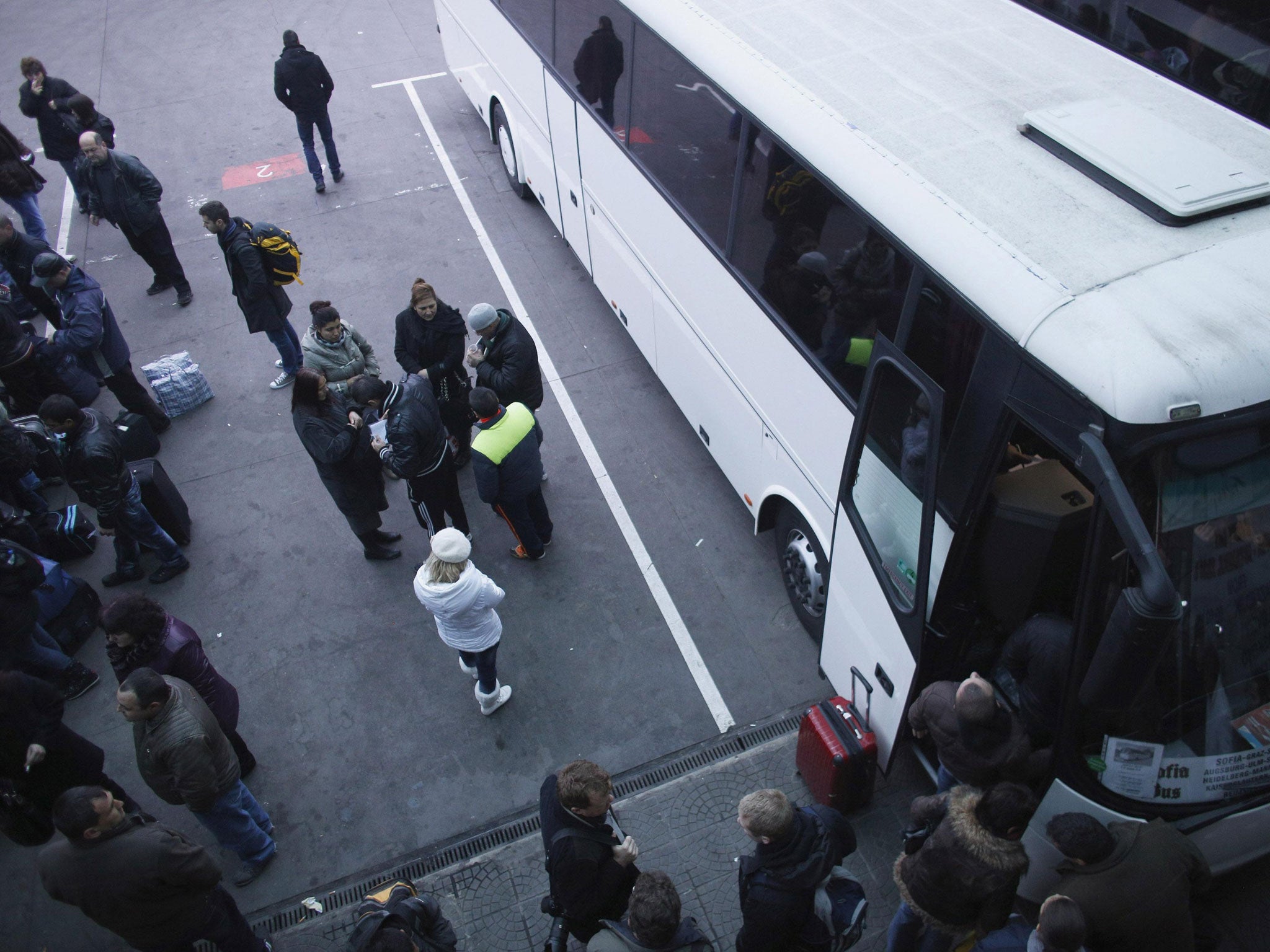Anti-immigrant feeling in Britain is on the rise as more than half want cut in numbers, according to major new research
Survey suggests that attitudes were hardening even before Romanian and Bulgarian immigrants hit the news

Your support helps us to tell the story
From reproductive rights to climate change to Big Tech, The Independent is on the ground when the story is developing. Whether it's investigating the financials of Elon Musk's pro-Trump PAC or producing our latest documentary, 'The A Word', which shines a light on the American women fighting for reproductive rights, we know how important it is to parse out the facts from the messaging.
At such a critical moment in US history, we need reporters on the ground. Your donation allows us to keep sending journalists to speak to both sides of the story.
The Independent is trusted by Americans across the entire political spectrum. And unlike many other quality news outlets, we choose not to lock Americans out of our reporting and analysis with paywalls. We believe quality journalism should be available to everyone, paid for by those who can afford it.
Your support makes all the difference.Hostility to the current scale of immigration is increasing among the public, with more than half of the electorate wanting a heavy cut in numbers of foreigners allowed to settle in Britain, research disclosed last night.
New findings from the British Social Attitudes survey suggest the mood was hardening even before immigration soared up the political agenda with the lifting of transitional controls on Romanian and Bulgarian workers.
The survey found 77 per cent of people supported a reduction in immigration levels. That comprised 56 per cent who wanted it cut by “a lot” – the highest number on record – and another 21 per cent who wanted it reduced a little.
Numbers backing a substantial cut in immigration have risen from 39 per cent in 1995 and 49 per cent a decade ago.
However, despite claims that influxes of newcomers will depress wages and increase unemployment, the research also found the proportion who believed immigration was bad for the economy had dropped from 52 per cent in 2011 to 47 per cent last year. 31 per cent said migration had boosted the economy.
Read more:
34 per cent said they thought immigration enriched Britain’s cultural life, compared with 45 per cent who took the opposite view.
The results of the survey, which is conducted by NatCen Social Research, were released for the BBC2 programme, The Truth About Immigration, which is broadcast tonight.
It also underlined how the issue of immigration is socially and politically divisive. More than half (52 per cent) of Conservative supporters believe British culture is undermined by immigration compared with just 20 per cent of Liberal Democrat voters.
Meanwhile, 40 per cent of Labour supporters think it is bad for the economy with 36 per cent saying it has been beneficial.
The most positive views are expressed by graduates, 60 per cent of whom think immigration is good for the economy, and the highest paid, 48 per cent of whom view it as beneficial.
Penny Young, the chief executive of NatCen Social Research, said “These findings highlight the complexity of this issue for politicians facing two elections in 18 months and with limited options if they want to attempt to reduce migration from Europe.
“The public broadly agrees immigration is too high, but there are stark social divisions over the economic and cultural benefits of immigration.”
In tonight’s programme, Theresa May, the Home Secretary, says: “I think the problem in the past has been that there’s been this general assumption immigration was always good for the economy.
“I don’t think people have looked at it sufficiently closely to be able to recognise the impact it has on members of the public.”
Yvette Cooper, the shadow Home Secretary, calls for “a more calm, measured debate and sensible response to people’s concerns”.
Meanwhile Poland’s foreign minister has hit out at David Cameron’s plans to strip child benefit payments from European Union migrants who have left their offspring in their home country.
Radoslaw Sikorski said there had been no need for him to “stigmatise” Poles by singling out his country’s citizens in comments at the weekend.
Join our commenting forum
Join thought-provoking conversations, follow other Independent readers and see their replies
Comments